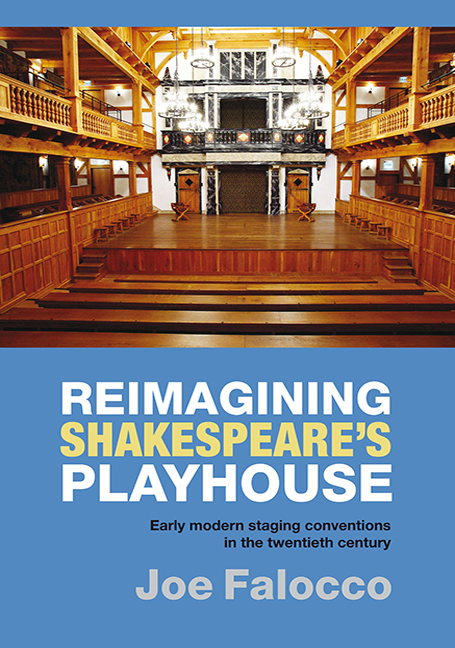Summary
Elizabethanism has always been “old and new in the same breath” (Womack 79). As was often the case with the twentieth-century avantgarde, from Antonin Artaud's fascination with traditional Balinese dance to William Butler Yeats's emulation of Japanese Noh Theater, a progressive desire to create new forms in response to the pressures of modernity motivated the Elizabethanists’ embrace of historical practices. Despite the claims of its detractors, the movement has never primarily pursued the fetishistic objective of freezing Shakespeare's plays in a distant and unobtainable era. From William Poel's Troilus and Cressida, which critiqued growing militarism on the eve of World War I, to Mark Rylance's 2005 Tempest, which deconstructed this play in a three-man production based on the philosophy of Carl Jung, Elizabethanists have frequently sought to connect their efforts to the zeitgeist of contemporary audiences. Nor are early modern practices inherently tied, as W. B. Worthen claimed in 1997, to an agenda of literary hegemony which minimizes the creative contributions of theater practitioners while revering the authorial intent of long-dead playwrights (Authority 33). While critics like Muriel St Clare Byrne sought to enlist the movement in the cause of textual fidelity, Elizabethanists from Poel onward consistently cut and adapted Renaissance plays to suit the needs of twentieth-century productions.
Even when initially drawn to early modern staging from a sense of literary duty, some practitioners have come to value the Elizabethan approach primarily for its impact on a contemporary public. Ralph Alan Cohen, the Professor of English who founded the American Shakespeare Center in Staunton, Virginia, writes of his company's early efforts, “we thought – rather grandly – that we were saving the plays, saving them from over-production and too- reverent treatment. What we discovered was that we were saving the audiences, too” (“Our Mission” 1). The expansion of Cohen's mission from “saving the plays” to also “saving the audiences” recalls performance scholar Diana Taylor's distinction between an “ archive of supposedly enduring materials (i.e., texts, documents, buildings, bones)” and a more “ephemeral repertoire of embodied practice/knowledge (i.e., spoken language, dance, sports, ritual)” (19). Worthen suggests that, for scholars like Taylor, “the oppressive character of the archive of text-based drama” (Worthen, “Reading” 80) engages what we traditionally think of as “theater” – actors performing a predetermined script – as “a means of reinforcing dominant culture” (Hamlet 305).
- Type
- Chapter
- Information
- Reimagining Shakespeare's PlayhouseEarly Modern Staging Conventions in the Twentieth Century, pp. 171 - 175Publisher: Boydell & BrewerPrint publication year: 2010

